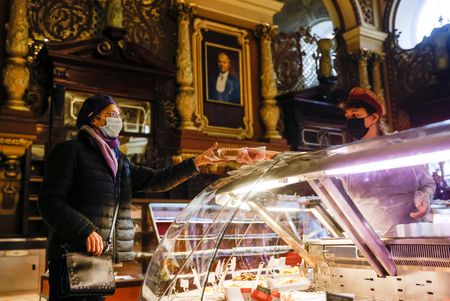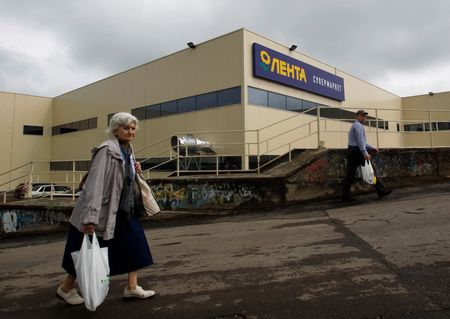MOSCOW (Reuters) -Weekly consumer prices in Russia rose marginally for the sixth week running, data published on Wednesday showed, vindicating the central bank’s decision to end its rate-cutting cycle last week and hold its key rate at 7.5%.
The central bank cautioned that expectations of price rises had grown and that Russia’s partial mobilisation could stoke longer-term inflation due to a shrinking labour force.
The central bank had cut its key rate six times in a row after an emergency hike to 20% in February when Russia’s decision to send troops into Ukraine caused inflation to spike.
Russia’s consumer price index rose 0.07% in the week to Oct. 31, the Rosstat federal statistics service said.
In a separate set of data, the economy ministry said inflation was running at 12.69% on an annual basis, down from 12.88% a week earlier.
The central bank targets inflation at 4%.
Falling living standards have lowered consumer demand, hitting retail sales and leading to an extended period of deflation over the summer. President Vladimir Putin’s military mobilisation drive threatens to undermine productivity, demand and economic recovery, analysts have said.
High inflation has for years been a concern for Russian households as it dents their spending power and eats into living standards. Poverty rates are relatively high in Russia and surveys show more than half of all households have no savings.
Since the start of the year, consumer prices have risen 10.71%, Rosstat said. At the same point in 2021, year-to-date inflation was running at 6.49%.
(Reporting by Alexander Marrow and Darya Korsunskaya; Editing by Angus MacSwan and Kevin Liffey)


